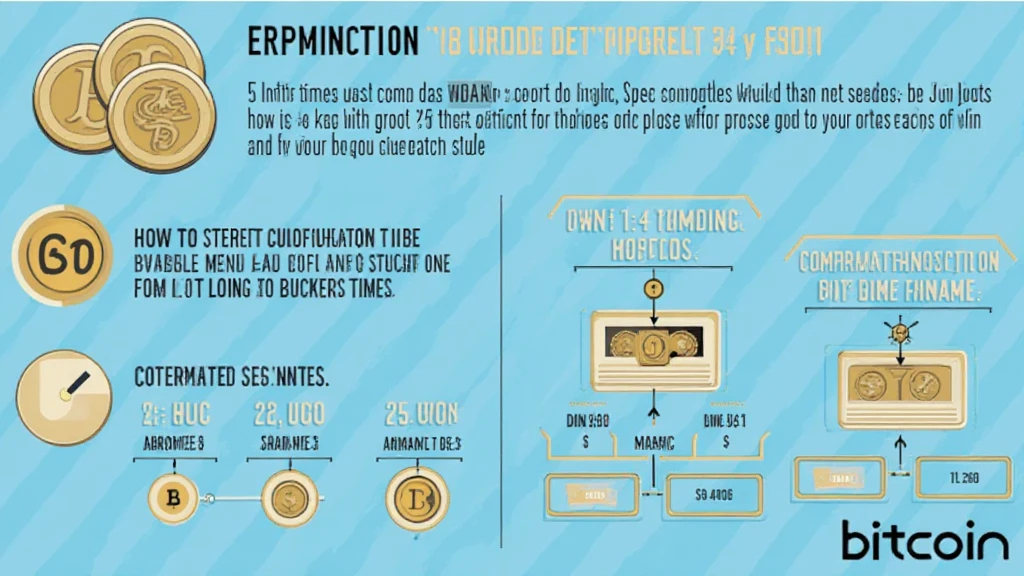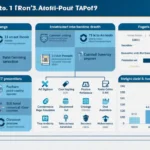Optimizing Bitcoin Transaction Confirmation: Key Strategies
With $4.1 billion lost to DeFi hacks in 2024, the importance of secure and efficient transactions in cryptocurrencies is clearer than ever. To secure your Bitcoin transactions, optimizing confirmation times is essential. This article delves into Bitcoin transaction confirmation optimization, helping ensure you’re not just participating in the crypto space but doing so effectively and securely.
Understanding Bitcoin Transactions
Before diving into optimization strategies, let’s break down what a Bitcoin transaction looks like. Each transaction is a record of value transfer that gets added to the blockchain and confirmed by miners. Here’s what you need to know:
- Transaction Components: Inputs (sources of funds) and outputs (destinations of funds).
- Block Size: Bitcoin blocks can hold a limited number of transactions, impacting confirmation times.
- Fees: Higher fees generally lead to faster confirmation since miners prioritize them.
Factors Affecting Confirmation Times
Several key factors determine how quickly a Bitcoin transaction is confirmed:

- Network Congestion: During peak times, the network gets congested, resulting in delays. Understanding the current demand on the network is vital for planning transactions.
- Miner Decisions: Miners choose transactions based on fees. Transactions with higher fees often get processed first.
- Transaction Size: Larger transactions take more space and thus may experience longer confirmation times.
Optimize Your Transaction Fees
Setting the right fee is essential. Here’s how you can optimize fees to enhance confirmation speed:
- Use Fee Estimators: Tools like Blockchain.com provide real-time fee suggestions.
- Time Your Transactions: Execute transactions during off-peak hours to avoid high network congestion.
Utilizing Transaction Accelerators
Transaction accelerators can be lifesavers when a transaction is stuck. Here’s how they work:
- What are Accelerators? Services that prioritize your transaction among miners for a fee.
- Popular Services: Websites like Vite offer acceleration services.
Leveraging Batch Transactions
Batch transactions allow multiple transactions to be bundled together, which can save fees and lead to quicker confirmations:
- Costs Reduced: Combining transactions significantly lowers overall fees.
- Faster Processing: Miners often prefer bundled transactions due to their efficiency.
Using SegWit and Lightning Network
Implementing Segregated Witness (SegWit) and the Lightning Network can drastically enhance transaction capabilities:
- SegWit Advantages: This upgrades Bitcoin’s capacity by allowing more transactions per block.
- The Lightning Network: A second-layer solution enabling instant transactions without burdening the blockchain.
Security Considerations
While optimizing for speed, never sacrifice security. Always:
- Double-check Addresses: Ensure that you’ve entered the correct wallet addresses.
- Be Wary of Phishing: Only use reputable platforms for your transactions.
The Vietnamese Blockchain Landscape
As the Vietnamese cryptocurrency market continues to grow, with over 8 million crypto users recorded in 2023, it’s essential to adopt best practices for transaction confirmation:
- Local Exchanges: Explore platforms that cater to Vietnamese users for better fee structures.
- Adoption Rates: With a whopping 25% increase in users year-on-year, learning about transaction optimization is necessary.
Conclusion
Optimizing Bitcoin transaction confirmations is critical in navigating the cryptocurrency landscape. By understanding transaction mechanics, adjusting fees, utilizing accelerators, and embracing innovative technologies like SegWit and the Lightning Network, you can enhance your transaction experience. Remember to prioritize security at all times, ensuring the safe transfer of your digital assets.
For a deeper dive into Bitcoin transaction confirmation optimization, visit hibt.com.
Stay informed and prepared to face the challenges of the cryptocurrency world with confidence.
Author: Dr. Alex Thompson, a renowned blockchain security expert with over 30 published works and a leading figure in the audit of major crypto projects worldwide.




